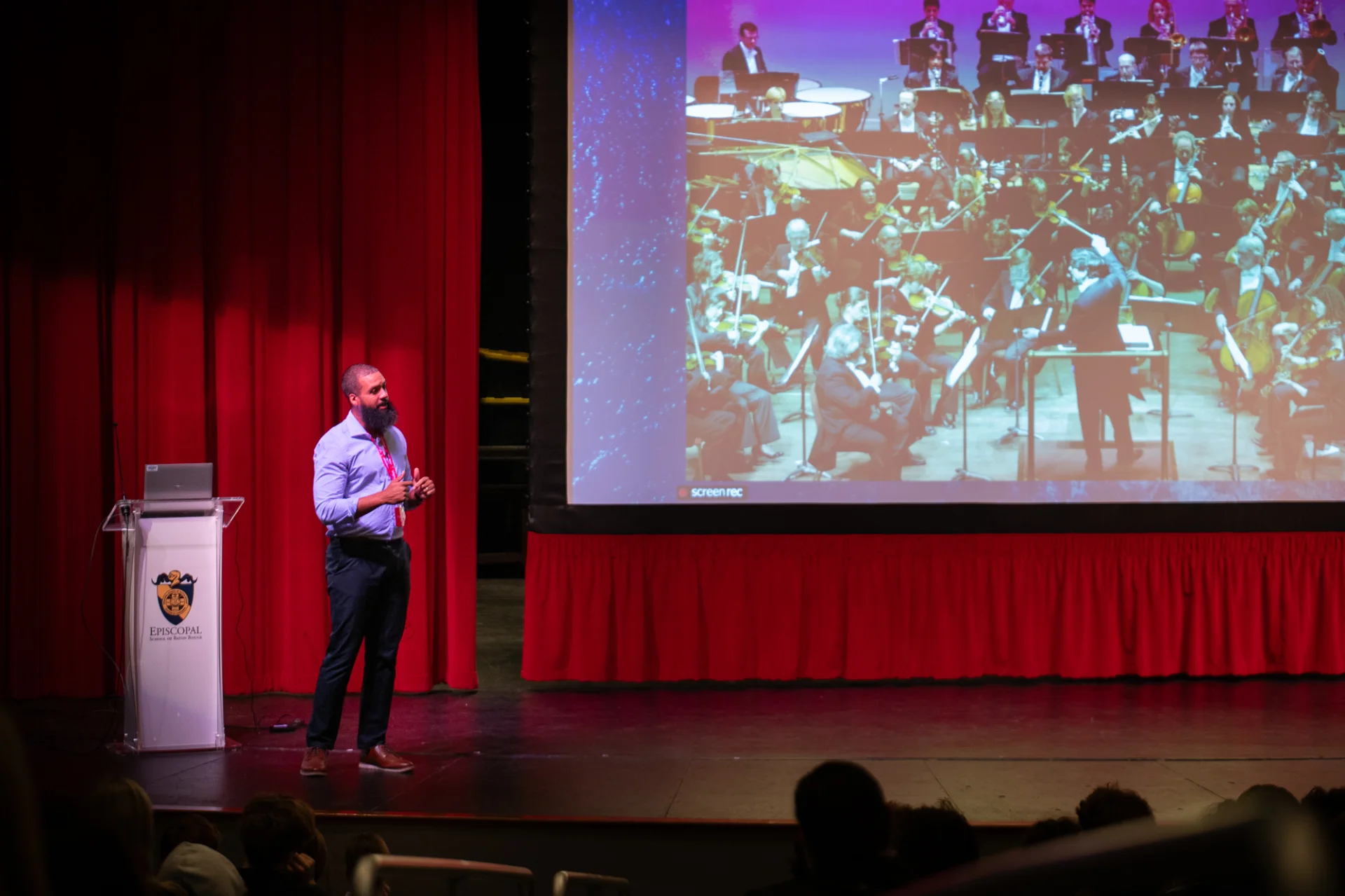- Admission
- Discover Episcopal
- Our Program
- Athletics
- Arts
- Spirituality
- Student Life
- Support Episcopal
- Alumni
- Parent Support
- Knightly News
- Contact Us
- Calendar
- School Store
- Lunch Menu
« Back
Upper School Students Explore Jury Service as a Way to Serve Others
January 16th, 2025
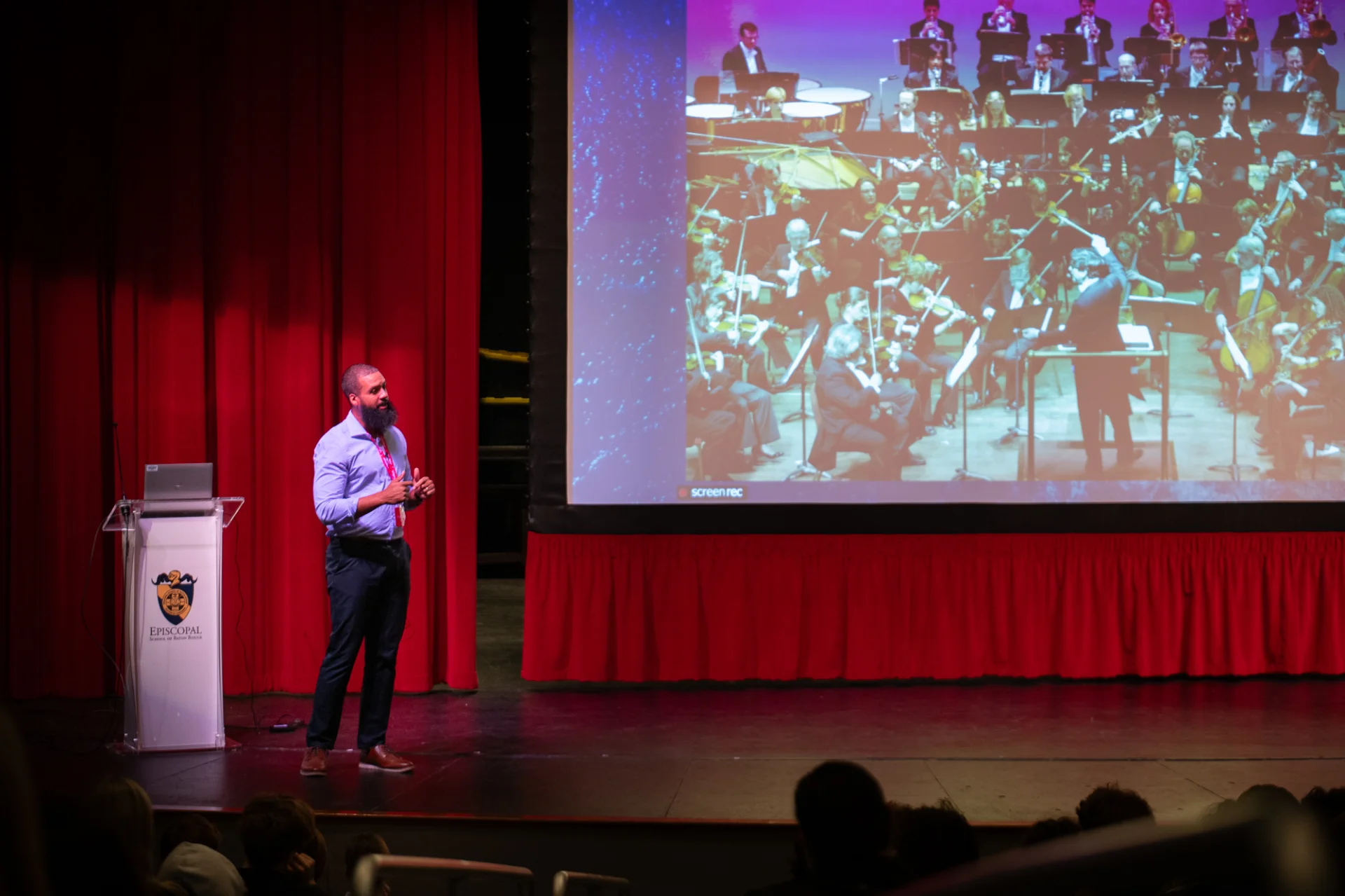
What does it mean to love your neighbor? What do we need to know about our neighbors before we serve them?
A guiding principle in the student-driven Service Learning and Community Impact course is to love and serve your neighbor, and students consider what that means throughout the course. Each semester, Upper School students enrolled in the course determine what they’d like to study and explore. Course teacher Dr. Rebecca Kuhn says criminal justice has been a common interest among students since the class was first introduced.
Recently, students had the opportunity to explore the criminal justice concept of juries more in-depth with Will Snowden, J.D. Snowden, an attorney and professor in the College of Law at Loyola University in New Orleans, founded The Juror Project. The Juror Project's mission is “to change the makeup of juries to better represent the American population and the communities most commonly accused. We pursue this through community and public education about jury eligibility and the jury selection process and the power jurors hold in America’s high stakes criminal justice system.”
“At the end of the day, I want all of you to be jurors,” Snowden advised students. “You have unique perspectives as young people. Think about today when you get that summons and join me in being an ambassador for jury service.” Throughout the class meeting, Snowden reminded students of why jury service matters and why diversity of perspectives, gender, race, education and socioeconomic status is important in the jury box. He pointed out the risks involved when that diversity is reduced and the impact that can have on incarceration rates.
Upper School students were engaged, taking notes in their journals and role-playing a jury selection process. They asked Snowden questions ranging from “Why six or 12 people on a jury?” to “If you could change something about the judicial system, what would it be?” Dr. Kuhn is always happy to see students thinking about topics and their impacts on society. “In the class we talk about the ways we can serve our neighbors,” she says. “Being an engaged, involved juror isn’t usually one that comes to mind. I’m glad Mr. Snowden shared why jury service and having diverse juries is a way to love and serve each other.”
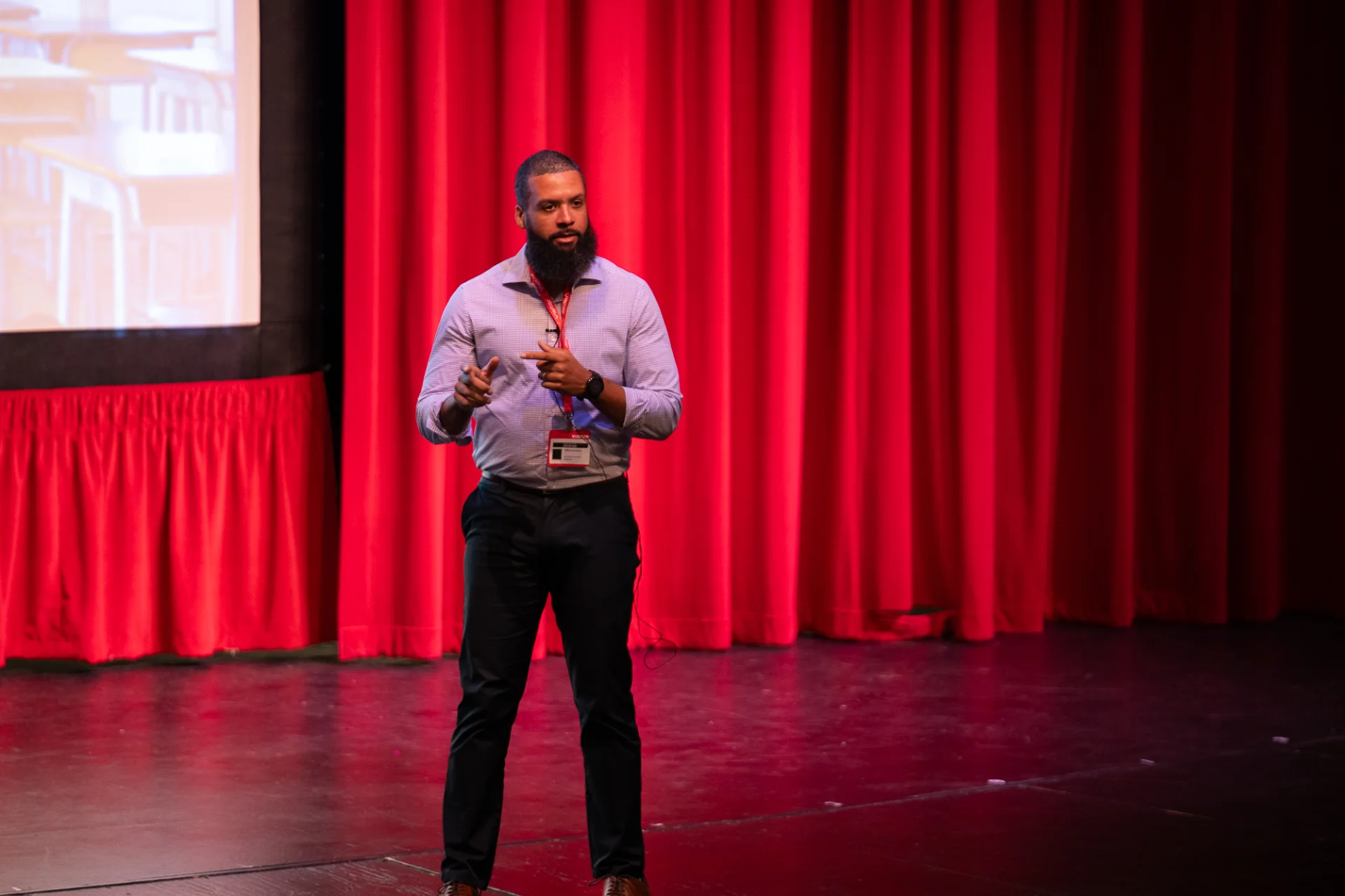
After Snowden met with the service learning students, he moved to the Visual & Performing Arts Center theater, where he offered insight to the entire Upper School student body. Snowden discussed implicit bias, which he advised everyone has, and how implicit bias impacts our lives and the lives of others. “The way we see each other is the way we treat each other,” he pointed out. “We don’t let other people define who we are.”
Relatable and knowledgeable, Snowden shared examples from his own life regarding implicit bias. He defined implicit bias as the brain’s automatic, instant association of stereotypes or attitudes toward particular groups, often without our conscious awareness. Snowden also offered tips to help students and faculty reduce implicit bias, including learning more about people to disregard a stereotype, replacing the stereotype and increasing opportunities for positive contact with others. “Don’t allow implicit bias to get in the way of us promoting excellence in our world,” he shared.
Thoughtful discussions, such as those recently led by Snowden and students, nurture a strong and united community. They also align with our Episcopal identity, which says: “Episcopal schools have been established not solely as communities for Christians, like a parish church, but as diverse institutions of educational and human development for people of all faiths and backgrounds. Episcopal schools are populated by a rich variety of human beings, from increasingly diverse religious, cultural, and economic backgrounds.” Such experiences are a powerful example of the meaningful learning experiences facilitated by Episcopal faculty and staff, and these experiences prepare our students well for lives of purpose and meaning.
The Episcopal School of Baton Rouge 2025-2026 application is now available! For more information on the application process, to schedule a tour, or learn more about the private school, contact us at [email protected] or 225-755-2685.
Other articles to consider
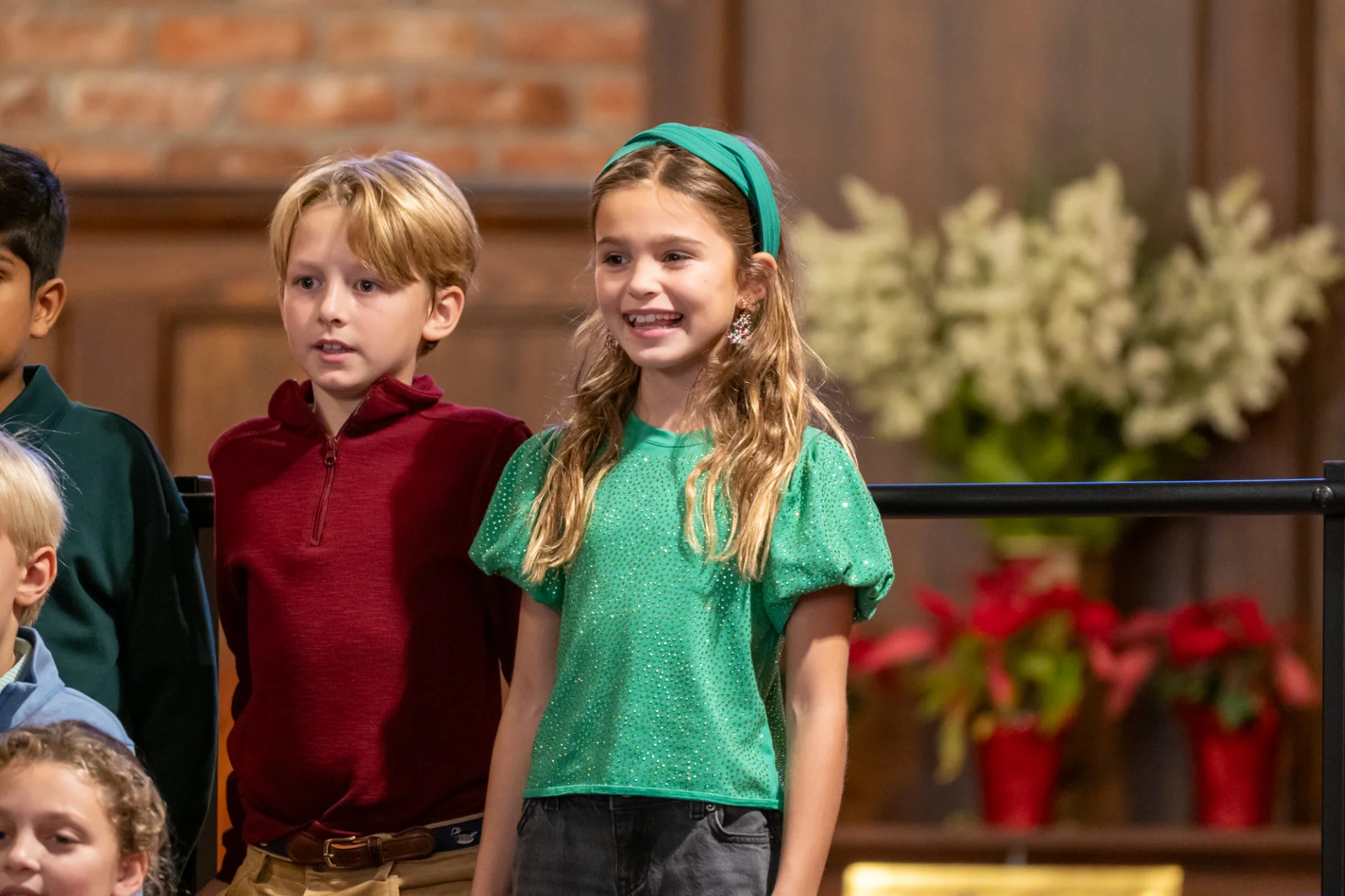 Dec12From Service to Song: Lower School Students Celebrate Christmas in Two Languages
Dec12From Service to Song: Lower School Students Celebrate Christmas in Two LanguagesEpiscopal third graders celebrated the season and French heritage with a special holiday program in the Lewis Family Memorial Chapel of the Good Shepherd.
See Details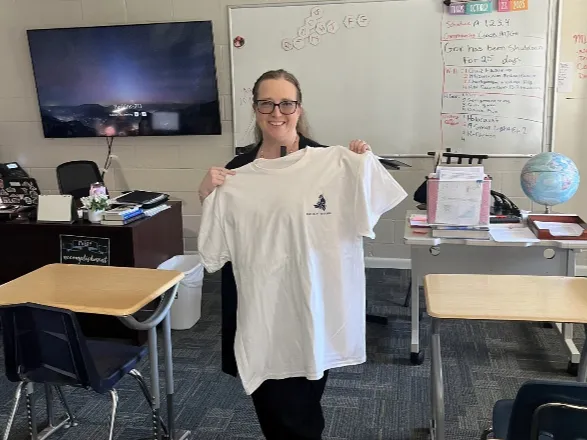 Dec11Upper School Recognizes Excellent Educators
Dec11Upper School Recognizes Excellent EducatorsThis semester, Upper School students recognized teachers who inspire, support and challenge them every day. Congratulations to our Excellent Educator honorees.
See Details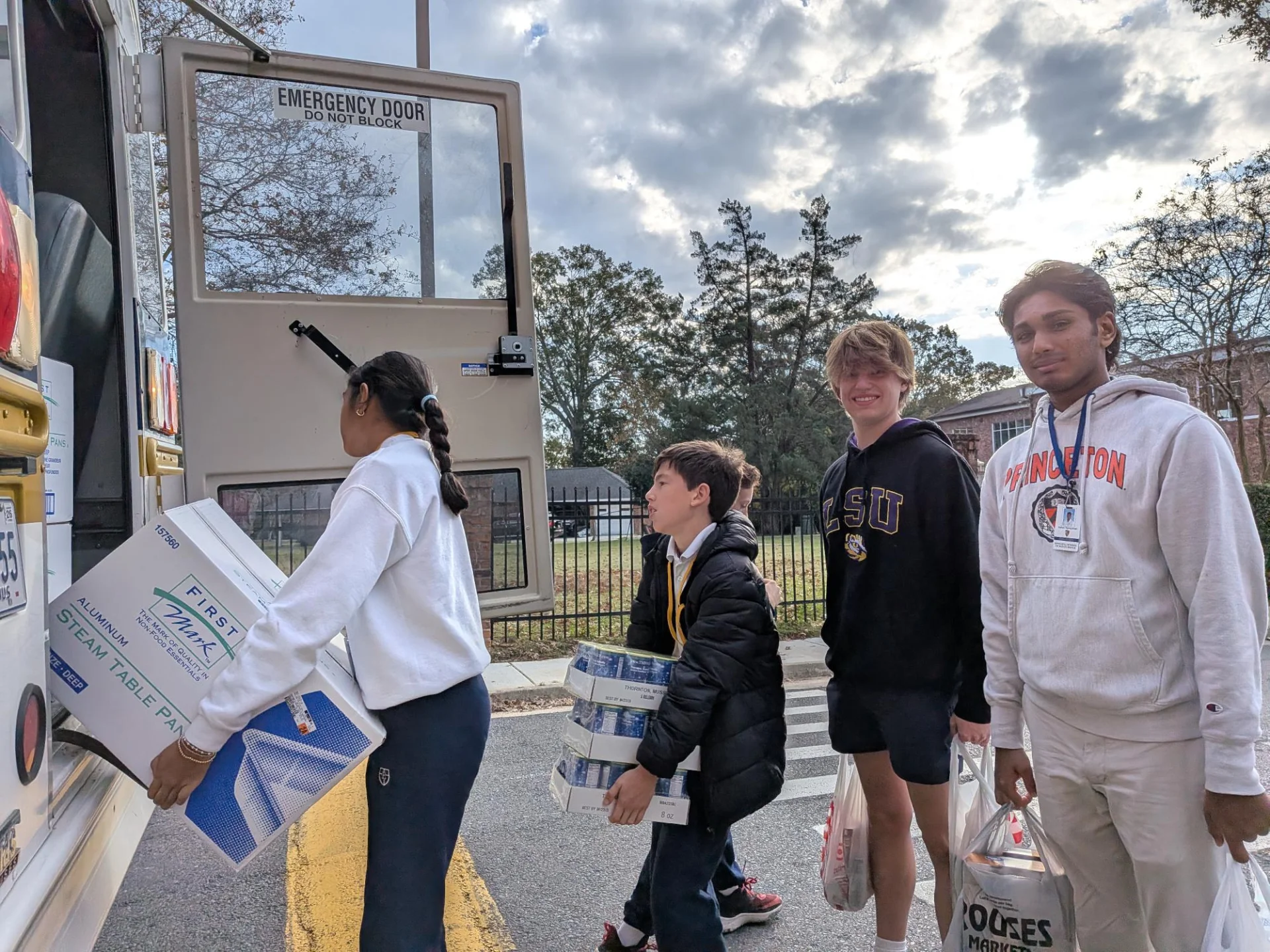 Dec11Smashing Goals, Building Community: Episcopal’s Shepherd’s Market Food Drive Success
Dec11Smashing Goals, Building Community: Episcopal’s Shepherd’s Market Food Drive SuccessThe Episcopal Shepherd’s Market Food Pantry “Great Turkey Giveaway” food drive broke records. We’re proud of our students and families for building community through service.
See Details Dec4Sixth Grade Care Packages Build Community and Bridge Generations
Dec4Sixth Grade Care Packages Build Community and Bridge GenerationsEpiscopal sixth graders shared holiday cheer by sending care packages to members of the Class of 2025. A tradition that proves once a Knight, always a Knight! Plus, learn more about upcoming alumni holiday events.
See Details
Categories
- All
- Admission
- Athletics
- College Bound 2019
- College Bound 2020
- College Bound 2021
- College Bound 2022
- College Bound 2023
- College Bound 2024
- College Bound 2025
- Counselors Corner
- Episcopal Alumni
- Giving
- Head Of School
- Lower School
- Middle School
- Spirituality And Service
- Student Work
- The Teachers' Lounge
- Upper School
- Visual And Performing Arts
Recent Articles
- 12/12/25From Service to Song: Lower School Students Celebrate Christmas in Two Languages
- 12/11/25Upper School Recognizes Excellent Educators
- 12/11/25Smashing Goals, Building Community: Episcopal’s Shepherd’s Market Food Drive Success
- 12/4/25Sixth Grade Care Packages Build Community and Bridge Generations
- 12/3/25What is Project Based Learning?
- 12/2/25Celebrating the Season with Student Art
- 12/2/25Christmas Through a Child’s Eyes by Jenny Heroman Koenig '01


